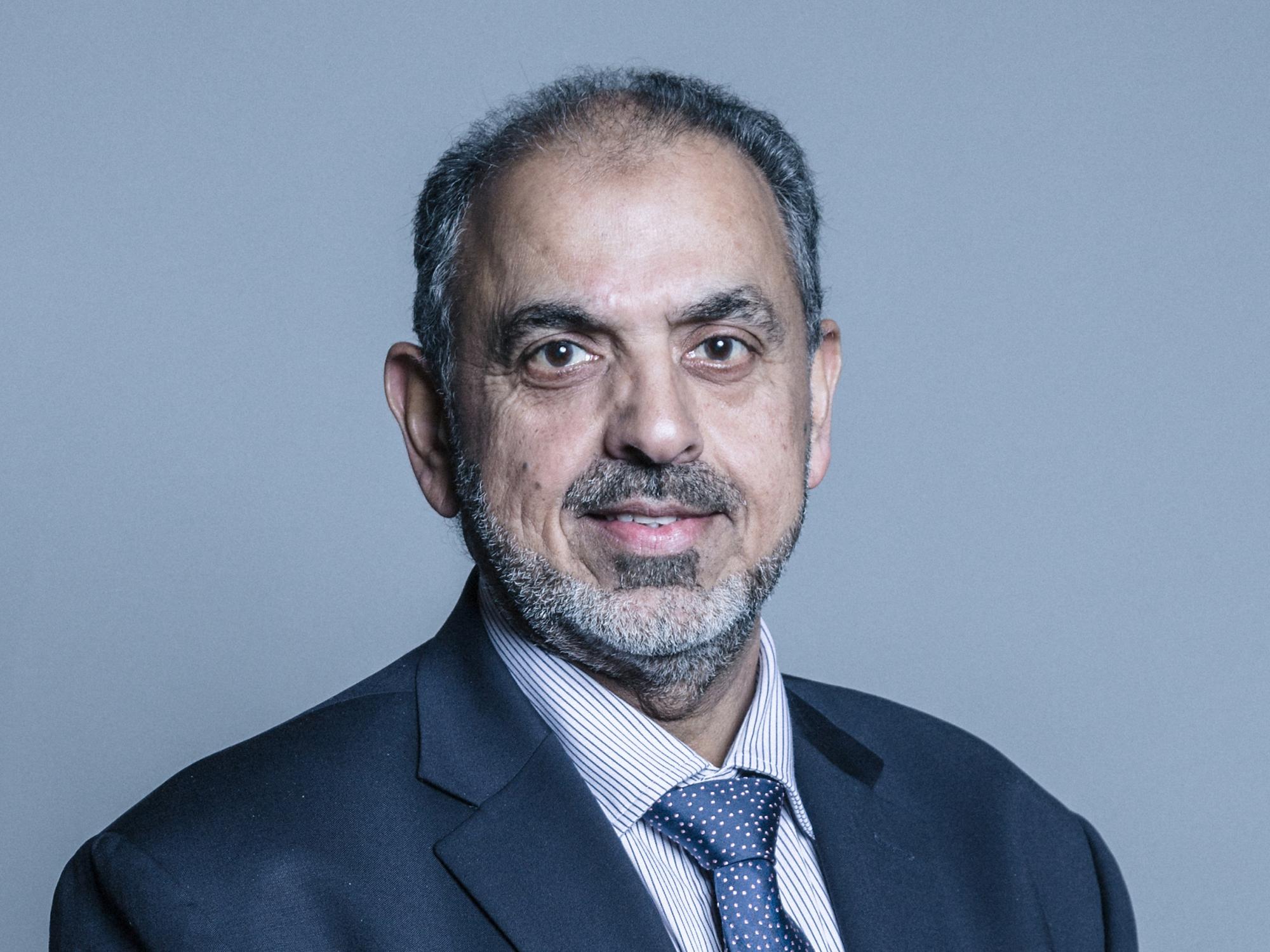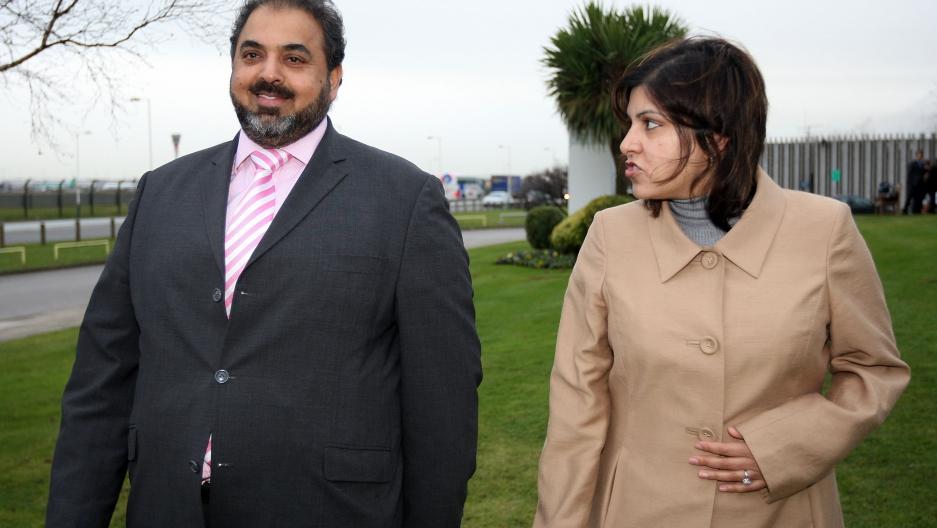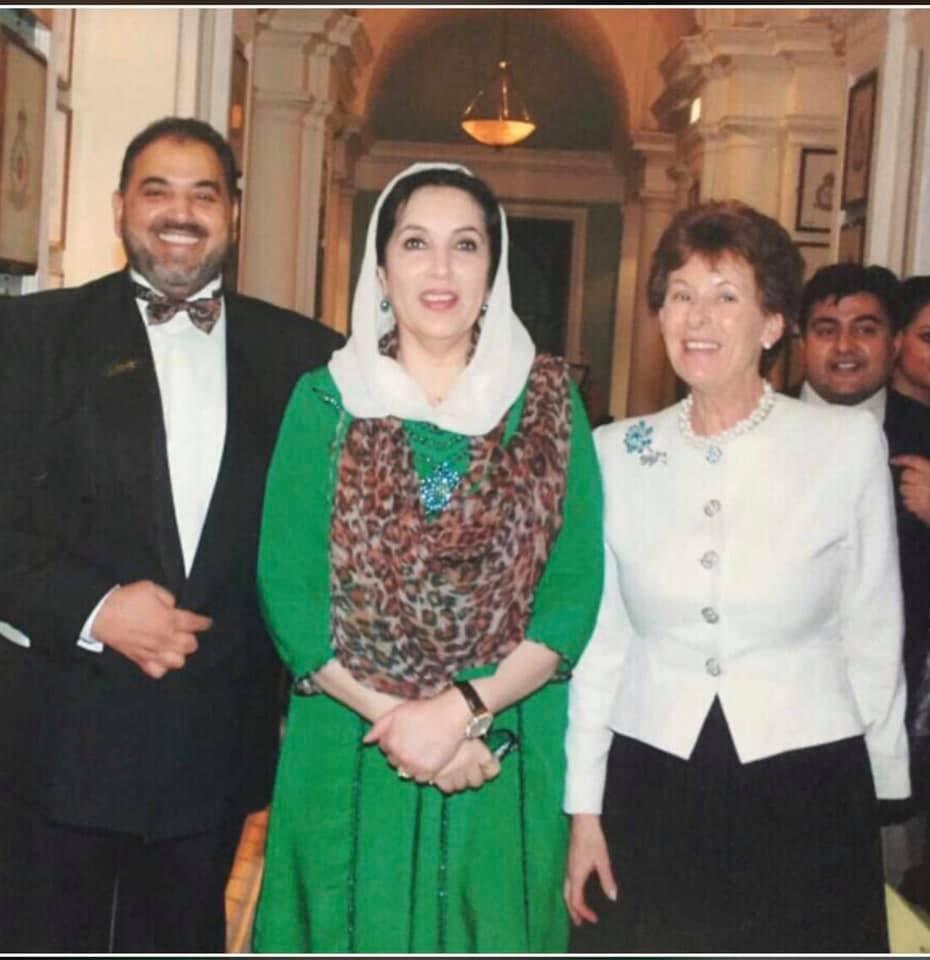
"I'm not a typical member of the House of Lords, I'm very much a peer of the people." Lord Nazir Ahmed, I'm from a working class background and I'm very proud of that. I got involved with the business twenty three years ago, and every little bit we have done as a family. I look back and I think, well that's a great achievement.
We started frying fish and chips in a village called Sunnyside. About fifteen or sixteen years ago we opened this shop in Rotherham town centre and I used to fry fish and chips myself. It's great!
I'm not a typical member of the House of Lords, very much a peer of the people.
I am very much in touch with people, very approachable. People have my telephone number, my mobile number gets printed in the newspapers.
People ring me up, they want to talk to me about their own issues. Sometimes they just have ideas about certain problems and they'll say ‘well I've got an idea about'... you know…drugs in Bradford or the problems that existed in Oldham.
People have rung me up and said 'Lord Ahmed could you raise it with the government...' Sometimes people say ‘you know next time you see Tony Blair will you tell him this', and they don't realise that I don't speak with Tony Blair on these type of issues. But I do write in, or if I see any of the Secretaries of State I talk to them.
As a British Muslim I feel that this multi-religious, multi-ethnic society has a great contribution to make in the world, because we have started this dialogue of civilisations here, and that dialogue of civilisations and understanding of each other's religion, each other's beliefs, can be extended to the rest of the world.
Lord Ahmed, who has been sentened to be jailed for 12 weeks for dangerous driving, became the UK's first British Pakistani Muslim life peer in 1998 and has been at the heart of debates concerning the Islamic community at home and abroad.
His outspoken views, and sometimes his actions, have courted controversy on a number of occasions.
Most recently, he spearheaded efforts to prevent far-right Dutch MP Geert Wilders from showing a controversial film about the Koran at the House of Lords.
The Pakistan-born Labour peer argued the film, which equated the Koran with extremism and terrorism, was offensive and would incite racial hatred in the UK.
Mr Wilders was ultimately banned from entering the UK, prompting claims that freedom of speech was being stifled.
In 2007, Lord Ahmed was drawn into the fall-out from the controversial jailing of British teacher Gillian Gibbons in Sudan.
He flew to Sudan with his close friend, the Conservative peer Baroness Warsi, to try to negotiate her release.
Ms Gibbons had spent eight days in jail for insulting Islam after allowing children in her class to name a teddy bear Muhammad, but was later pardoned and flew home.
Lord Ahmed told the BBC at the time that the Foreign Office had advised him not to go, but that he had pressed ahead and made his own arrangements regardless.
'Demonisation'
He said the Foreign Office had stressed he was there as "an individual parliamentarian", not to represent the government.
But he added that he and Baroness Warsi had been able to speak to the Sudanese government, whereas the British ambassador and government officials were not able to because of "problems" between the two countries.
Five months earlier Lord Ahmed had taken a stand on another issue affecting the Muslim community when he criticised author Salman Rushdie's knighthood.
 |
Lord Ahmed, in June 2008 |
Lord Ahmed called on then Prime Minister Tony Blair to withdraw the honour, accusing the author of The Satanic Verses of having "blood on his hands" for offending Islam in his writings.
The peer also openly clashed with his party's leadership in October 2006 when he openly criticised the way British Muslims were treated.
He told the BBC there was "a constant theme of demonisation of the Muslim community" and that politicians were jumping on a bandwagon by "having a go" at Muslims.
He said people were exploiting the fact that some within the Muslim community threatened national security.


Property developer
As a high-profile leader of the Muslim community, Lord Ahmed has played a role in easing tensions after the London bombings in July 2005 and the 9/11 attacks on the US in 2001.
Three months after 9/11 he hit the headlines after claiming the government had tapped his phone because of his opposition to the war in Afghanistan.
It was a claim the government denied.
Lord Ahmed, 51, was born in Pakistan but has lived in Rotherham, in South Yorkshire, since his childhood.
He studied public administration at Sheffield Hallam University and joined the Labour Party at the age of 18.
Having distinguished himself as a proactive local councillor, he founded the British Muslim Councillors' Forum in 1992 and became a Justice of the Peace in the same year.
He was appointed to the House of Lords in 1998 as Baron Ahmed of Rotherham after several years as chairman of the South Yorkshire Labour Party.
The married father-of-three has operated as a politician alongside a business career as a property developer.
'Sad loser'
He helps with various charitable causes and is on the board of several organisations.
He is president of South Yorkshire Victim Support and a trustee of the British Heart Foundation.
In June 2008 he denied rumours that had been circulating at Westminster for several weeks that he was about to defect to the Conservatives.
He blamed an unnamed Labour minister for fuelling the rumours, telling the BBC the minister was a "sad loser".
He told Newsnight's political editor Michael Crick: "I'm not going anywhere. I would never leave the Labour Party. I've been a member of the Labour Party for 32 years and may this continue for another 32."
 I'm not going anywhere. I would never leave the Labour Party. I've been a member for 32 years, and may this continue for another 32
I'm not going anywhere. I would never leave the Labour Party. I've been a member for 32 years, and may this continue for another 32 